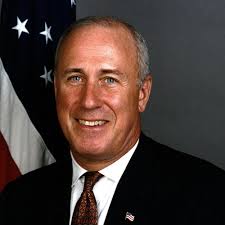 |
| T.E. Lawrence |
A good friend from Nashville visited last week and she wondered out loud why New Hampshire is allowed such an outsized role in our nation's politics. This place is so...White! It's so homogeneous. Tennessee may be more representative of the push and pull going on in the country than this state of happy little shires populated by Hobbits.
She is not the first to make that point, but in a way I like the idea of New Hampshire, the prototypical Hobbit shire sending it's people and ideas out into the world. There are some, admittedly small in number but large in heart and mind, who launch themselves from their shires into the world and go to China or South America or Europe and see all that through the clear lenses they developed in Hampton and return with that and they bring what they grew in New Hampshire to the places they explore.
She is actually unusual in that she had the intellectual daring to learn Japanese, having grown up in North Carolina, and she made an impressive career working for law firms and various groups as an American who was fluent in Japanese and who understood the culture. Getting an American mind to bend to the Asian world is challenging and requires courage and persistence.
People who leave the comfortable and explore have often been malcontents, restless because they did not feel they really fit into the safe, comfortable world their parents had organized for them.
Lawrence of Arabia was typical in that sense--said to have been homosexual and certainly not enamored of British imperial culture, he sought the exotic and embraced it in Arabia.
 |
| Hemingway and Friends |
Hemingway was not happy and snug at home and that led him to Europe, where he learned French and Spanish and rejected the familiarity of the American Midwest and he discovered the joys and risks of life in Spain, France and Germany. And he brought home those adventures and insights and made his home country more aware and educated in the process.
 |
| Douglas Paal |
 |
| Deb and James Fallows |
Gauguin brought home his colors and his palate from Polynesia to France, where van Gogh learned from him and the world is in debt to that intermingling.
We are told we are living in the new global economy, but exploration and interaction is as old as mankind roaming out of Africa, as old as the Silk Road and men in ships heading from Viking land toward Newfoundland and from Spain to the Caribbean. It has occurred, for much of man's history as part of war, from the Crusades to World War II.
The difference now is that a boy who grew up in North Carolina and became an accountant for a big American firm now finds himself in Hong Kong and Beijing with some regularity and he brings all that home to his workplace, his community and his family. The numbers in this group will overwhelm the numbers of artists, academics and government types. They may actually change America and the world.
But it takes courage and it takes vigor and persistence. The question is, will we have the wisdom to support those who are willing to launch?

No comments:
Post a Comment